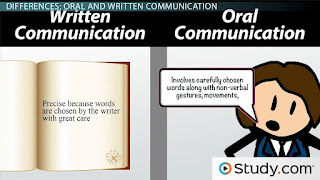Written Communication Classes: Enhancing Your Writing Skills
Effective written communication is an essential skill to succeed in both personal and professional settings. Whether you are a professional seeking to improve your business writing or a student aiming to enhance your academic writing, enrolling in written communication classes can provide you with the necessary knowledge and skills to communicate effectively through written mediums.
Why Take Written Communication Classes?
1. Improve Writing Skills: Written communication classes offer comprehensive instruction on grammar, sentence structure, vocabulary, and punctuation, helping participants refine and enhance their writing skills. Proper writing techniques lead to clear and concise communication, eliminating ambiguity and misunderstanding.
2. Expand Vocabulary: A strong vocabulary is fundamental to effective written communication. These classes often focus on expanding participants' vocabulary by introducing new words and teaching various techniques to choose the right words for conveying ideas accurately. A rich vocabulary elevates writing quality and allows for a more precise expression of thoughts.
3. Construct Logical Arguments: Developing persuasive and logical arguments is a crucial aspect of written communication. Through written communication classes, participants learn how to organize their thoughts and ideas coherently, present strong arguments, and support them with well-researched evidence. These skills are beneficial in academic, professional, and personal writing contexts.
4. Enhance Critical Thinking: Effective writing requires critical thinking skills. Written communication classes encourage participants to think critically while presenting their ideas in written form. Analyzing different perspectives, evaluating evidence, and forming well-founded conclusions are essential components of these classes, fostering the development of strong critical thinking abilities.
What to Expect from Written Communication Classes?
1. Instruction from Experienced Professionals: In written communication classes, you can expect to receive guidance from experienced professionals who possess expertise in writing, communication, and language skills. These instructors provide valuable feedback and individual attention, ensuring personalized learning experiences.
2. Interactive Learning Environment: Most written communication classes adopt an interactive learning approach. Participants engage in discussions, group activities, and writing exercises to practice their skills and receive constructive criticism. Collaborative learning environments further enhance the learning process, allowing participants to learn from both their instructors and peers.
3. Varied Writing Assignments: Written communication classes typically involve a variety of writing assignments that cover different genres and formats. These assignments can include academic essays, persuasive letters, formal emails, and business reports. By diversifying their writing practice, participants develop greater versatility in different writing contexts.
4. Continuous Feedback and Improvement: Regular feedback is essential for progress in written communication. In these classes, participants often receive feedback on their written assignments, allowing them to identify their strengths and areas for improvement. Constructive criticism assists individuals in honing their writing skills and steadily enhancing their written communication abilities.
In Conclusion
Written communication classes provide individuals with a platform to enhance their writing skills, expand their vocabulary, construct logical arguments, and develop critical thinking abilities. These classes offer valuable instruction, personalized guidance, and opportunities for continuous improvement. Whether you seek to improve your academic writing, professional communication, or simply refine your written expression, enrolling in written communication classes can be a highly rewarding experience.


No comments:
Post a Comment